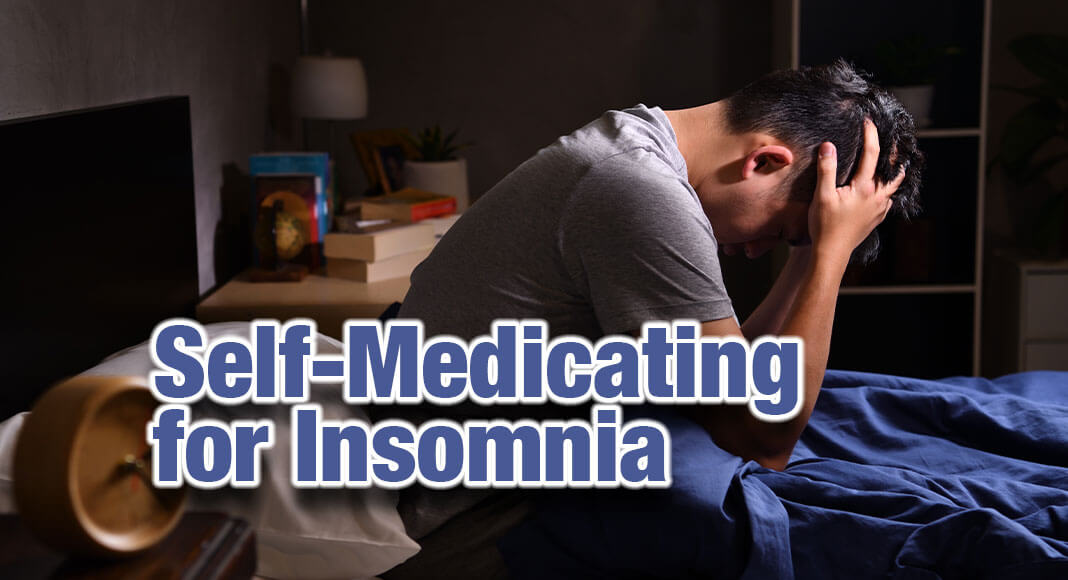
Mega Doctor News
by American Academy of Sleep Medicine (AASM)
Newswise — Nearly 3 in 10 Americans (28%) say insomnia has a negative impact on their daily lives, according to a new survey from the American Academy of Sleep Medicine (AASM). This Tuesday, June 21, on the “shortest night of the year,” the AASM and the Society for Behavioral Sleep Medicine (SBSM) will hold the annual Insomnia Awareness Night to drive awareness of chronic insomnia and its treatments. More than an occasional restless night, chronic insomnia involves difficulty falling asleep or staying asleep, or regularly waking up earlier than desired, despite allowing enough time in bed for sleep.
“Chronic insomnia is a dangerous public health problem. When left untreated, chronic insomnia can lead to a range of long-term health issues, including depression, Alzheimer’s disease, Type 2 diabetes and more, and can impact nearly every aspect of your life,” said Jennifer Martin, a licensed clinical psychologist and president of the AASM.
Use of Sleep Aids Growing; Cognitive Behavioral Therapy Recommended
The AASM survey also found that 64% of Americans are using sleep aids or substances to help them fall asleep or stay asleep. Twenty-three percent report use of prescription medications, 27% use melatonin and 20% use marijuana or CBD. Use of sleep aids has proliferated recently, as 37%of those who use sleep aids say their use has increased during the COVID-19 pandemic.
When used correctly, sleep aids like melatonin can be effective for some, however, a clinical practice guideline published by the AASM suggests that clinicians should not use melatonin in adults to treat chronic insomnia. Melatonin and sleep aids are not a ‘one-size-fits-all’ solution to nightly sleep trouble. People who suspect they have chronic insomnia should work with their medical provider to find the best treatment option.
“Developing healthy sleep hygiene habits can help someone who has a mild or short-term case of insomnia, but if symptoms persist into the daytime and inhibit your quality of life, it’s time to seek support from your doctor,” said Michael Grandner, a licensed clinical psychologist and president of SBSM. “Board-certified sleep experts can determine an accurate diagnosis for an ongoing sleep problem and guide individuals along a proper treatment plan for their unique health history and lifestyle.”
For those with chronic insomnia, the recommended first-line of treatment is cognitive behavioral therapy for insomnia (CBT-I). CBT-I combines behavioral strategies, such as setting a consistent sleep schedule and getting out of bed when you are struggling to sleep, with cognitive strategies, such as replacing fears about sleeplessness with more helpful expectations. CBT-I recommendations are customized to address each patient’s individual needs and symptoms.
“Cognitive behavioral therapy can help patients by providing customized strategies for individuals of all ages who are suffering from insomnia,” added Martin. “Studies show that CBT-I shows meaningful improvements in those with chronic insomnia, and it’s a cost-effective option.”
Since 2014, Insomnia Awareness Night has been held nationally to provide education and support for those living with chronic insomnia. Learn more at https://sleepeducation.org/get-involved/campaigns/insomnia-awareness-night/.
Download these 2022 AASM Sleep Prioritization Survey results. To learn more about the importance of healthy sleep, visit SleepEducation.org.
About the Survey
The American Academy of Sleep Medicine commissioned an online survey of 2,010 adults in the U.S. The overall margin of error fell within +/- 2 percentage points with a confidence interval of 95 percent. Fieldwork took place between Feb. 17-24, 2022. Atomik Research is an independent market research agency.
About the American Academy of Sleep Medicine
Established in 1975, the AASM advances sleep care and enhances sleep health to improve lives. The AASM has a combined membership of 11,000 accredited member sleep centers and individual members, including physicians, scientists and other health care professionals (aasm.org).
About the Society of Behavioral Sleep Medicine The Society of Behavioral Sleep Medicine (SBSM) is an interdisciplinary organization committed to advancing the scientific approach to studying the behavioral, psychological and physiological dimensions of sleep and sleep disorders and the application of this knowledge to the betterment of individuals and societies worldwide (https://www.behavioralsleep.org/).








